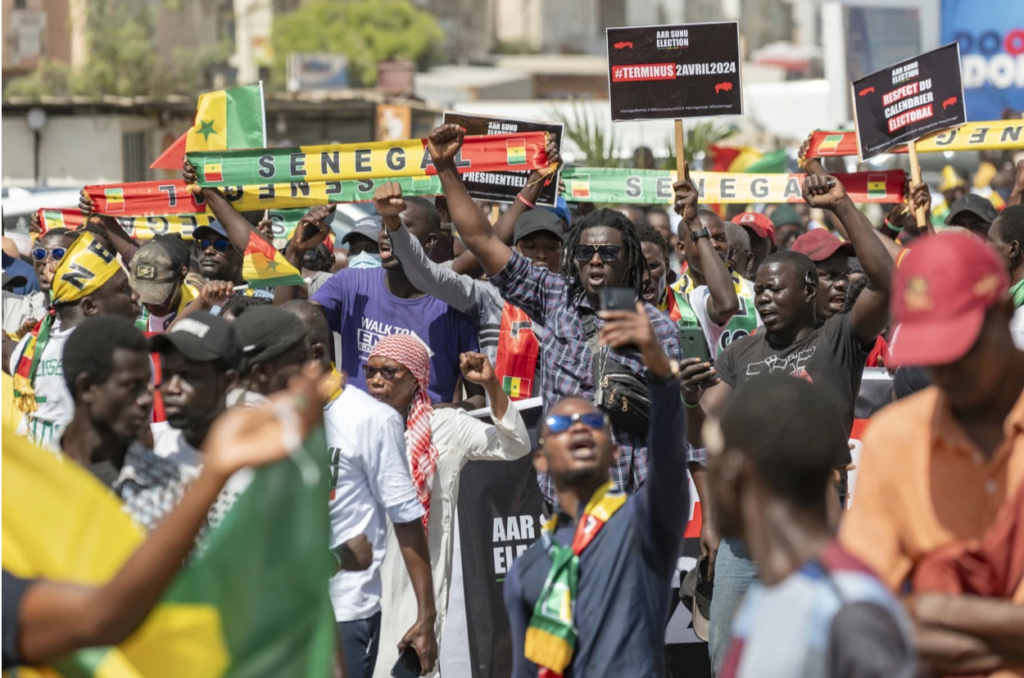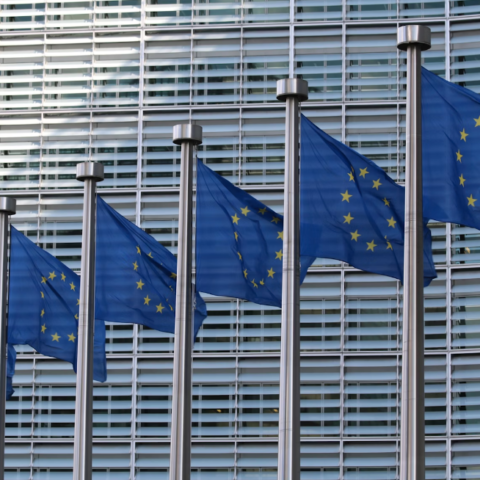By Lily Thomas, Zachary Leggio, and Mayerlyn Rivera
Edition 3: March 18-March 24

Upcoming
Senegal
Senegal’s controversial presidential elections are finally taking place on Sunday, March 24. The elections were initially delayed indefinitely by incumbent President Macky Sall, with the parliament eventually setting the election for mid-December. The delay caused widespread protesting, rioting, and three reported deaths. This caused President Sall to release political prisoners to appease the opposition, while the Constitutional Council rejected the delay and called for the elections to be held as soon as possible.
The Constitutional Council approved 19 candidates to run in this year’s election, all but ensuring that a runoff will be necessary. This election is scheduled for the following week, March 31. Major candidates include Amadou Ba, who was President Sall’s prime minister, until Sall replaced him so that Ba could focus on the campaign; Khalifa Sall (unrelated to the current president), who was previously imprisoned for embezzlement of funds and is now running on a platform of sustainable development; Idrissa Seck, a former prime minister who has also been imprisoned for embezzlement and ran in the 2012 and 2019 presidential elections; Mahammed Boun Abdallah Dionne, another former prime minister who is focused on economic independence for Senegal; and Bassirou Faye, a young tax collector who is running as the main voice of opposition against Sall’s government. Faye began his campaign in the name of Ousmane Sonko, Senegal’s most prominent opposition politician. Faye and Sonko were both imprisoned by Sall and were recently released as a part of Sall’s amnesty bill.
The presidential election will see several major issues at its forefront. Youth employment currently sits at 60%, a third of the country’s population lives in poverty, and Senegal’s lack of job security has caused thousands of Senegalese people to leave the country in order to seek work elsewhere. Another huge issue is democracy, as President Sall’s actions in February have contributed to West Africa’s reputation for democratic erosion and hurt Senegal’s reputation as one of the region’s strongest democracies. Whoever wins this election will have to rebuild trust with the people and affirm the country’s strong democratic principles on the internation stage.
Slovakia
The first round of Slovakia’s 2024 presidential elections will be Saturday, March 23, with a runoff scheduled for April 6. The first round will include 11 candidates seeking progression to the second round, although only three are projected to garner double digit support. The candidate expected to get the most votes is Peter Pellegrini, the current speaker of Slovakia’s parliament and an ally of the country’s populist prime minister, Robert Fico. Pellegrini’s election would lead to a shift towards the left in Slovakia’s politics and give Prime Minister Fico more power, whereas the incumbent president, Zuzana Čaputová, has kept the radical, pro-Russian prime minister in check. President Čaputová’s election made history in 2019, with her being the first woman and youngest ever person to hold the position. She won as a candidate of the liberal Progressive Slovakia party, with her platform including staunch advocacy for equality, the environment, LGBTQ+ rights, and reproductive rights. Pellegrini, on the other hand, is a strong supporter of ceasing the sending aid to Ukraine and would open the government in order to weaken the judiciary, similar to what Andrzej Duda has done in Poland. The second major candidate is Ivan Korčok, who possesses pro-Ukraine and pro-Western stances. His relevant experience includes serving as Slovakia’s foreign minister and ambassador to the United States. The third candidate is Štefan Harabin, a former Chief Justice of Slovakia’s highest court. Harabin is also pro-Russia, similar to Pellegrini, and his platform protests against the North American Trade Organization, the European Union, and the LGBTQ+ community. Incumbent President Čaputová has spoken out against many candidates running to take her place, warning that their platforms intend to infringe on the democratic principles of the country and expressing her intent to support Korčok on election day.
This presidential election sets up a run-off election that will likely see pro-Russian Pellegrini and pro-Western Korčok face off. This follows a similar trend in formerly communist countries in central and eastern Europe becoming divided between Western and Russian interests. The countries in the pro-Western camp, such as Estonia, Lithuania, and Latvia, see Russia as a threat to their independence and view NATO and the EU as the best avenues towards protecting their own independent interests. The more pro-Russia states, such as Poland, Hungary, Bulgaria, and now possibly Slovakia, see opposing Putin as pointless and think that their interests are best served by keeping Putin appeased, hence their opposition to providing Ukraine with aid. This election could see Slovakia move further towards that direction if Pellegrini is elected. Korčok’s victory would likely cause the balance of power to remain as is, with the pro-Russian, Fico-run legislature locked in a battle for influence with the president.
Recaps
Russia
Russia’s presidential elections took place from Friday, March 15 to Sunday, March 17, yielding unsurprising results. Vladimir Putin, who has been in power since 1999, won the election with a reported 87.8% of the vote, his largest margin of victory yet, extending his power for another six years. The international community does not consider these elections free or fair, due to a lack of transparency, the crackdowns on political opponents, and the lack of a free press.
Before his death on February 16, opposition leader Alexei Navalny called for voters to swarm polling centers and cast their ballots at noon on March 17. There were reports of a spike in voting at this time, especially among young voters in urban centers. At least 74 people were arrested in connection to this, along with perpetrators of election crimes, such as lighting fires in polling places and pouring dye into ballot boxes.
These elections were very important to Putin and Russia, as this was the first time a presidential election has occurred during a major war in post-Soviet Russia. This was Putin’s moment to solidify support for his war in Ukraine; continue his authoritarian narrative of “Forever Putinism,” which is the idea that Russia needs Putin to continue to prosper; and legitimize his regime through strong support from Russia’s elites. In the wake of the extrajudicial killings of Alexei Navalny and Yevgeny Prigozhin, this week’s landslide election victory only further proves that Putin knows he must constantly project strength in order to maintain his image of a strong grip on power and control in Russia.
Photo: https://apnews.com/article/senegal-election-president-macky-sall-protetss-9103d09f0908633e3eb359f201713700?utm_source=copy&utm_medium=share

